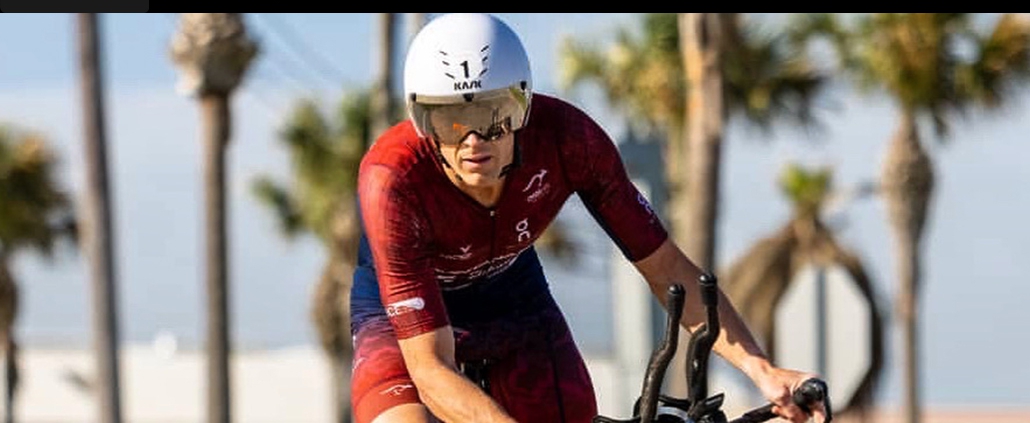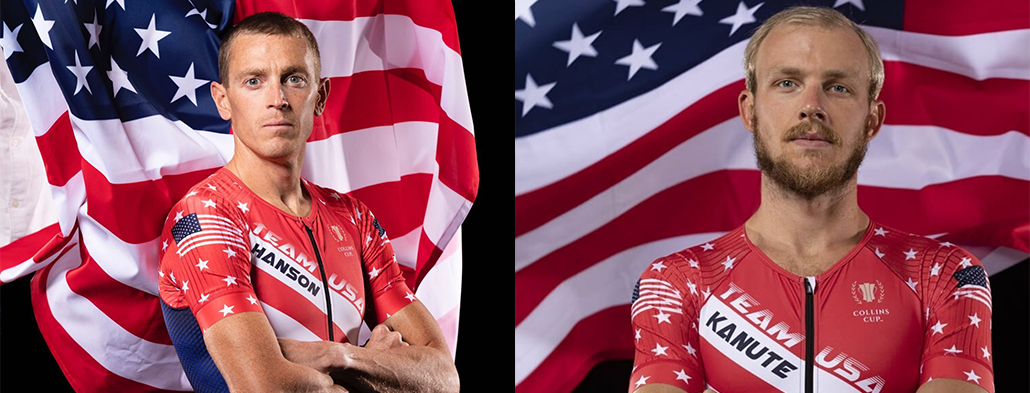Rewire Athletes Matt Hanson and Ben Kanute tackled the inaugural staging of the Professional Triathletes Organisation’s Collins Cup in Šamorín, Slovakia on Saturday, a team event featuring squads from the US, Europe, and the Internationals, formed of those hailing from outside the two geographical powerhouses of triathlon.
Matched up against some of the best the rest of the world had to offer, both finished second in their three person matches, with Kanute less than two minutes back of the leader in the gruelling three hour long event, bringing home 3.5 points for Team US, while Hanson ceded a longer gap to the first-placed athlete in his match, gaining 2 points.
The overall team result saw Europe take victory with 42.5 points, winning half of the 12 matches, including four straight in the middle of the competition, with the US finishing on 31.5, and Team Internationals languishing with 25.5.
Both athletes had qualified for the US team by virtue of their PTO World Rankings, and they joined four other men and six women to form the US team, led by six-time Ironman World Champion Mark Allen, and dual ITU World Champion Karen Smyers.
Three days prior to the event saw a televised draft to decide which athletes would contest each of the 12 matches that made up the unique event format, rewarding athletes with points for both finishing position, and margin of victory.
Match 10 saw Team Europe pick first, selecting Daniel Bækkegård. In response, Captains Allen and Smyers selected Kanute, who sat one place behind Bækkegård at eleventh in the world rankings coming into the competition. Australian Max Neumann was the final athlete selected, the world number 17 representing Team Internationals against two athletes with the capability to produce a swim leg up there with the best in the world.
“I think a lot of people underestimate Daniel, we did not, but we are going to put somebody against him who is absolutely fearless, and willing to put everything he has out there and a little bit more to make it super exciting and to bring home the win.”
The following match saw first pick back with Team US, and Matt Hanson was their penultimate selection of the draft, as the captains emphasised the quality of the 36-year-old’s running. The response from Team Internationals was to field Braden Currie, winner of Ironman New Zealand at age 35 on home turf earlier this year, and Team Europe chose German Patrick Lange, also 35, for one of the oldest matchups on the day.
Kanute was first out of the water in his match, his 25:20 for the 2 kilometre distance only being bettered by two other athletes all day. Unfortunately for Matt Hanson, however, those two athletes were both in his match, and so his time of 27:00 gave him a deficit of just under two minutes going into T1.
Coming off a fourth consecutive win at the Escape from Alcatraz triathlon, Kanute made up time in transition over the long course specialists, to stretch a lead of a solitary second coming out of the water to over 10 seconds entering the bike leg.
Shortly after the pair made their exit from the Danube, the US had the first win of the day delivered by Taylor Knibb, who had put seven minutes into her nearest challenger on both the bike and run legs to finish with maximum points and a lead of over 15 minutes.
On a damp course, which featured multiple bike leg crashes and missed turnings, both Rewire Athletes managed to keep on track, and rubber side down, with Kanute extending the gap to Bækkegård to over a minute early on in the 80 kilometre ride.
Kanute’s lead did not hold, unfortunately, with Bækkegård reeling the Rio Olympian in towards the end of the leg, as the American finished in a time of 1:47:23, holding a slender four second lead as the athletes entered the final 18 kilometres of the race. Ahead for much of the early running, Kanute eventually relinquished his lead to the Dane, generating a time just over the hour mark of 1:01:10 for his leg, which featured an impressive sprint finish.
Hanson clocked 1:51:59 for the bike leg, and emerged from T2 with a slight lead over Team Europe’s Lange, though with a four minute gap to Braden Currie ahead. The former professor’s buffer stretched to over a minute mid-run, and he finished in 1:03:25.
For Kanute, a total finishing time of 3:16:49 garnered him 3.5 points, courtesy of a significant margin over Neumann in third. However, the American could consider himself unfortunate, with the fastest non-winning time of any of the matches, and the fourth-fastest time overall behind two members of the world rankings top 3 in Jan Frodeno and Gustav Iden, and Bækkegård.
Hanson’s 3:25:46 generated 2 points, as an irrepressible Braden Currie stormed to victory in match 11. The Colorado-based athlete did well to hold the gap to Currie under six minutes, avoiding the Kiwi bringing home maximum points for Team Internationals.
Join Our Community Today!







